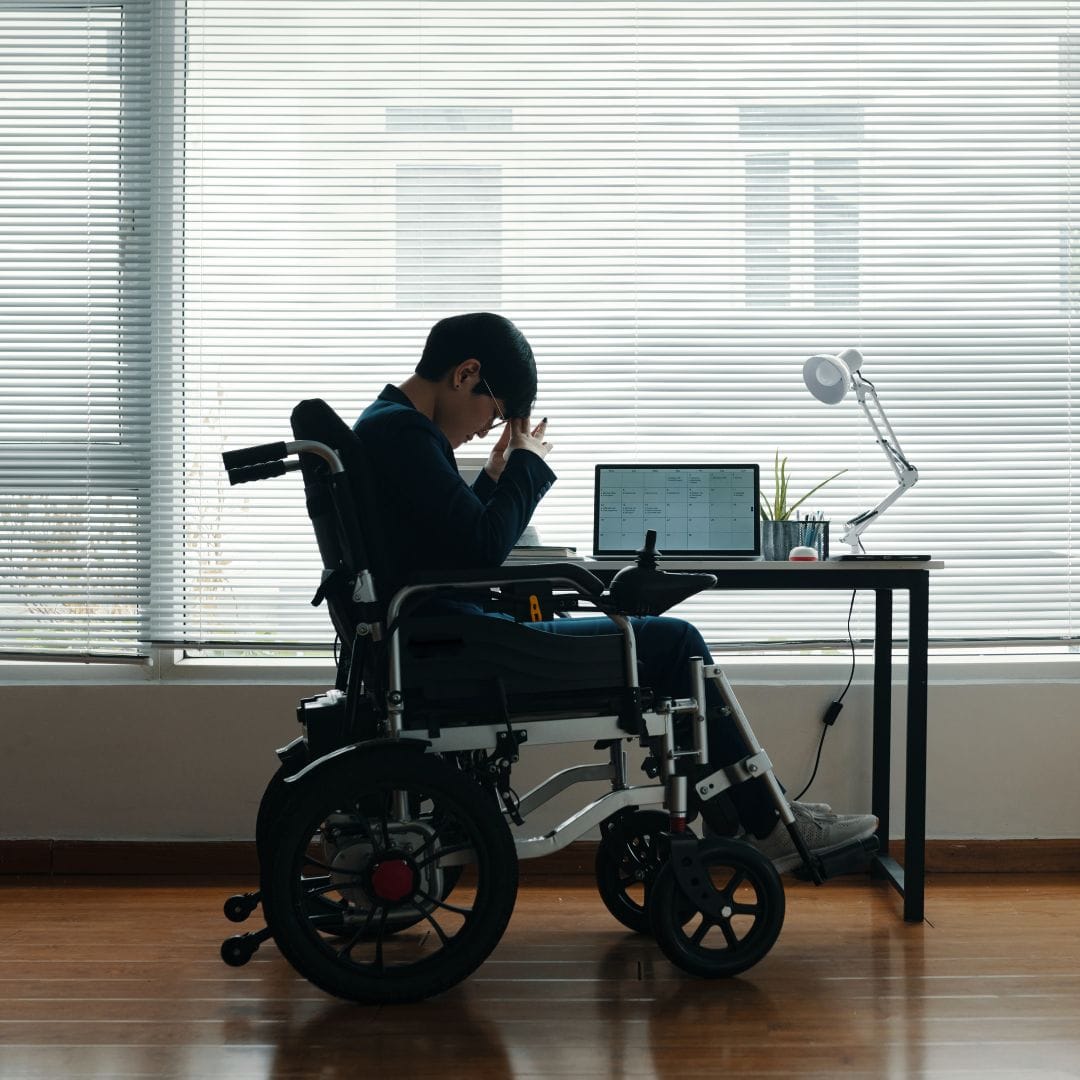The doctor is in! In our Spin Doctor series, we explore hot-button questions about SCI and disability from our peers throughout the province and share answers from healthcare professionals across disciplines.
Have a question of your own? Email thespin@sci-bc.ca to be featured!

Question:
“I was injured late last year and missed my period for several months. Now it’s back and it feels a lot more complicated to manage – got any tips?” – Kelly, from Chilliwack
Answer:

This answer was provided by Natasha Prodan-Bhalla, Nurse Practitioner for BC Women’s Hospital Access Clinic.
It also includes contributions from the Women with SCI/D Facebook group. If you’re interested in joining the group, email our InfoLine at info@sci-bc.ca and we can help you connect!
As you’ve already experienced, most people who were of childbearing age at the time of their SCI miss their periods for as long as 12 months. While this is completely normal, it can be an inconvenient addition to an already steep post-SCI learning curve. With some time, practice, hormonal management, and menstrual products, you should be able to find a routine that works for you.
Once your menstruation cycle returns, many find that SCI-related complications such as spasticity, pain, fatigue, swelling in the legs, and autonomic dysreflexia (AD) are worse during their period or the days leading up to it. Others aren’t aware of their period at all and may have to use a calendar or app to keep track of their cycle to avoid surprises. Adding to this difficulty is that, depending on your age, your periods may come back in an irregular pattern that’s hard to keep track of.
The period basics you learned in your youth still apply post-injury, with some added importance: it’s essential to keep clean during your period to prevent UTIs and protect your skin, change pads and tampons frequently to prevent odour and leakage, and use soap and water or wipes to clean your vulva.
Your approach to managing your period might depend on your hand function, how you manage your bladder, and how much help you need or have available for your personal care.
Menstrual Pads
Traditional pads are safe and easy to manage for many; however, if you pull your underwear on and off while managing your bladder, you might find pads can get twisted and end up stuck to your skin. It helps to check before you leave the bathroom that you have everything back in place. Sitting on a bunched up pad is not only bad for your skin, it’s a recipe for leakage! Because of this, many are turning to absorbent period panties like Thinx that can be a lot easier to get on and off than a pad stuck to your underwear, especially if you get dressed in your chair or have reduced hand function.
Tampons
Tampons are a good and popular option to manage periods. Compared to using pads, they can make intermittent or indwelling catheterization a little cleaner during your period—there’s less leakage and clean up to do, which can help avoid UTIs. Just make sure you change your tampon around every four hours to prevent rare complications. Keep in mind that tampons can be harder for quads to manage (though there are gadgets to help with this!), and they’re pretty intimate if you rely on a caregiver for help with personal care. If you get AD during your period, make sure to check your tampon, as they can sometimes cause discomfort that triggers AD even if you can’t sense it.
Menstrual Cups
Menstrual cups are a similar method to tampons but involve a flexible silicone cup that is inserted into the vagina up around the cervix. It’s removed and emptied in the toilet, so it may be more convenient for people with full hand function who drain their bladder into the toilet as well. This isn’t a great method if you catheterize from your chair because of the angle required to get the cup out (and the risk of spilling).
Another way to manage your period is to not have one at all! Great, right?
Hormonal Birth Control
An oral contraceptive pill or vaginal ring used continually, a hormonal IUD, or an injection like Depo-Provera can alleviate some of the unpleasant effects of your menstrual cycle and its effect on your SCI complications while reducing or stopping your period entirely. These methods can be managed by your primary care provider or at the Access Clinic at BC Women’s Hospital in Vancouver.
More Resources
Read our Contraception and Spinal Cord Injury guide.
Visit our SCI Sexual Health website to read more about Women’s Health and SCI.
This Spin Doctor question was originally featured in The Spin Winter 2020 edition. Read the full issue here.



